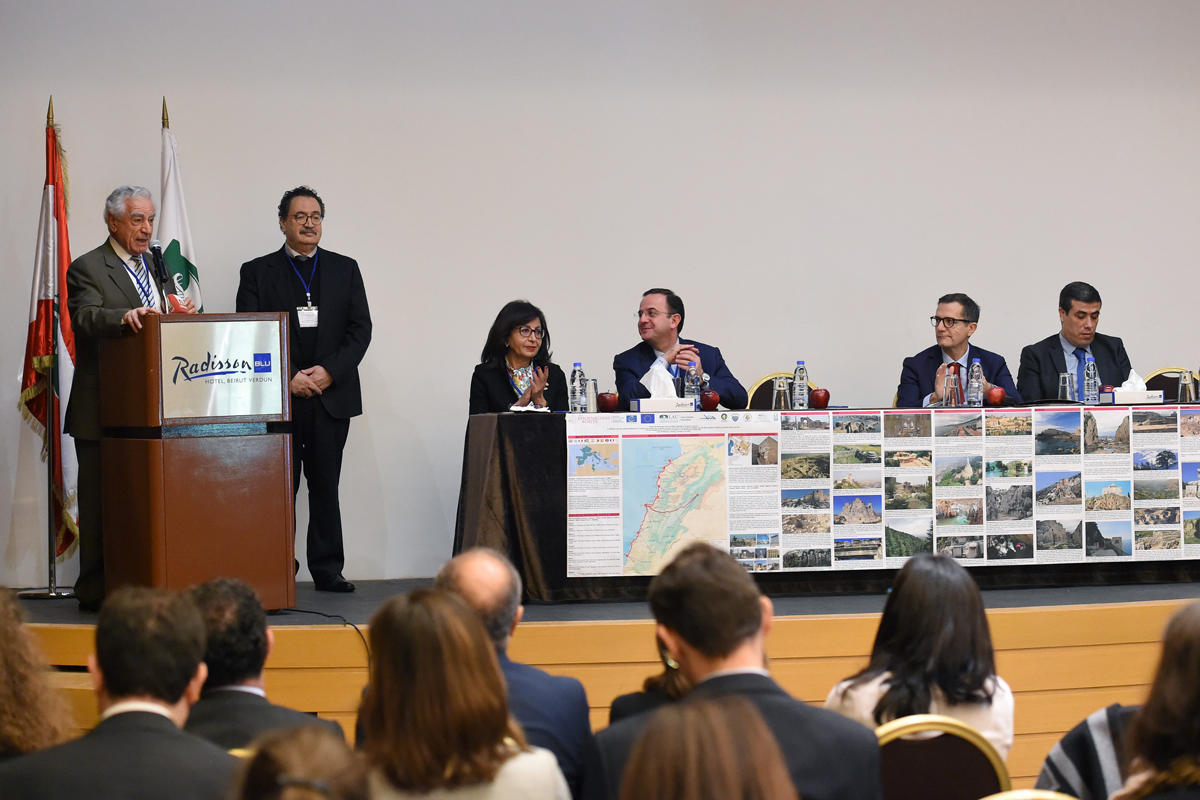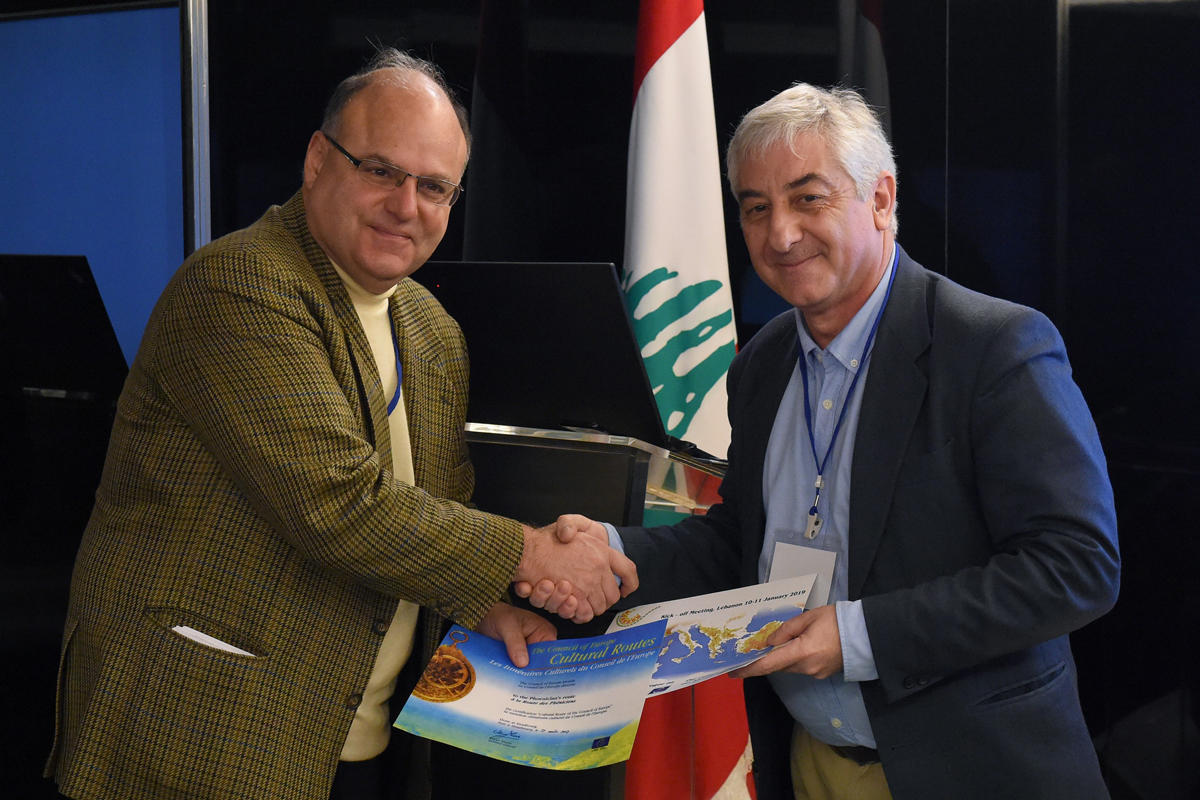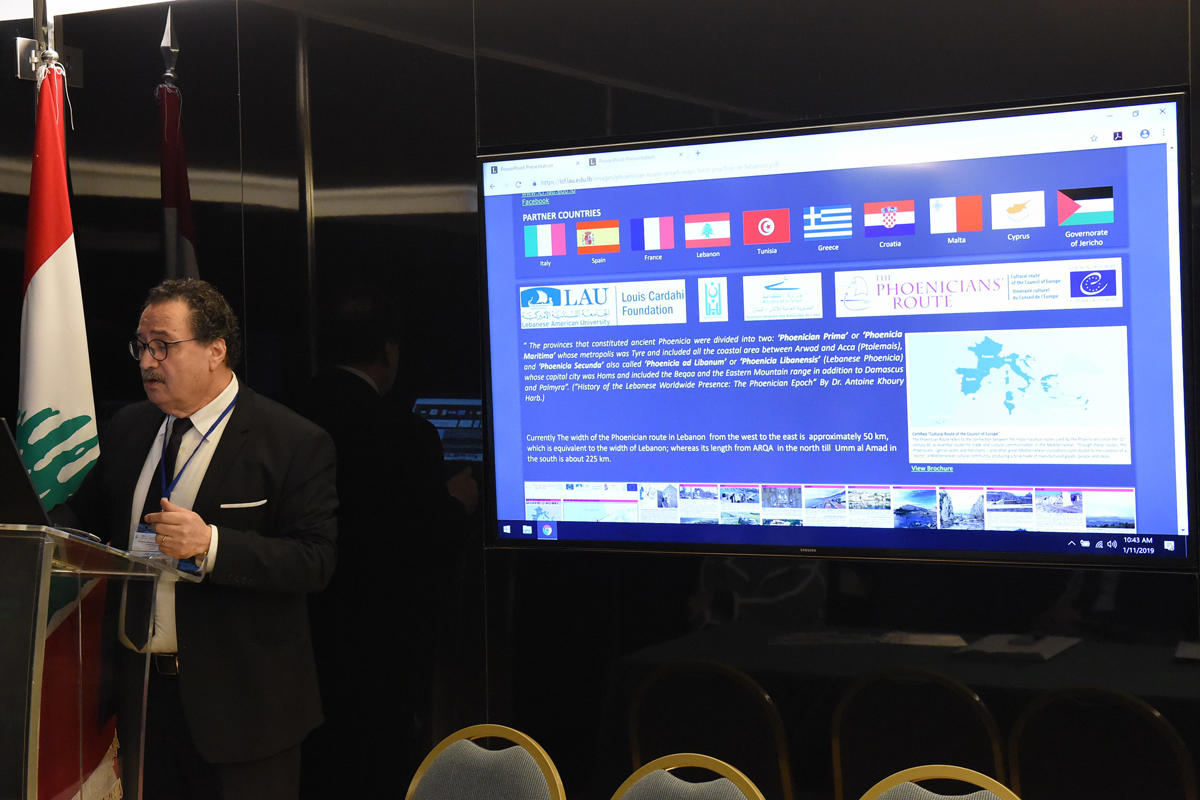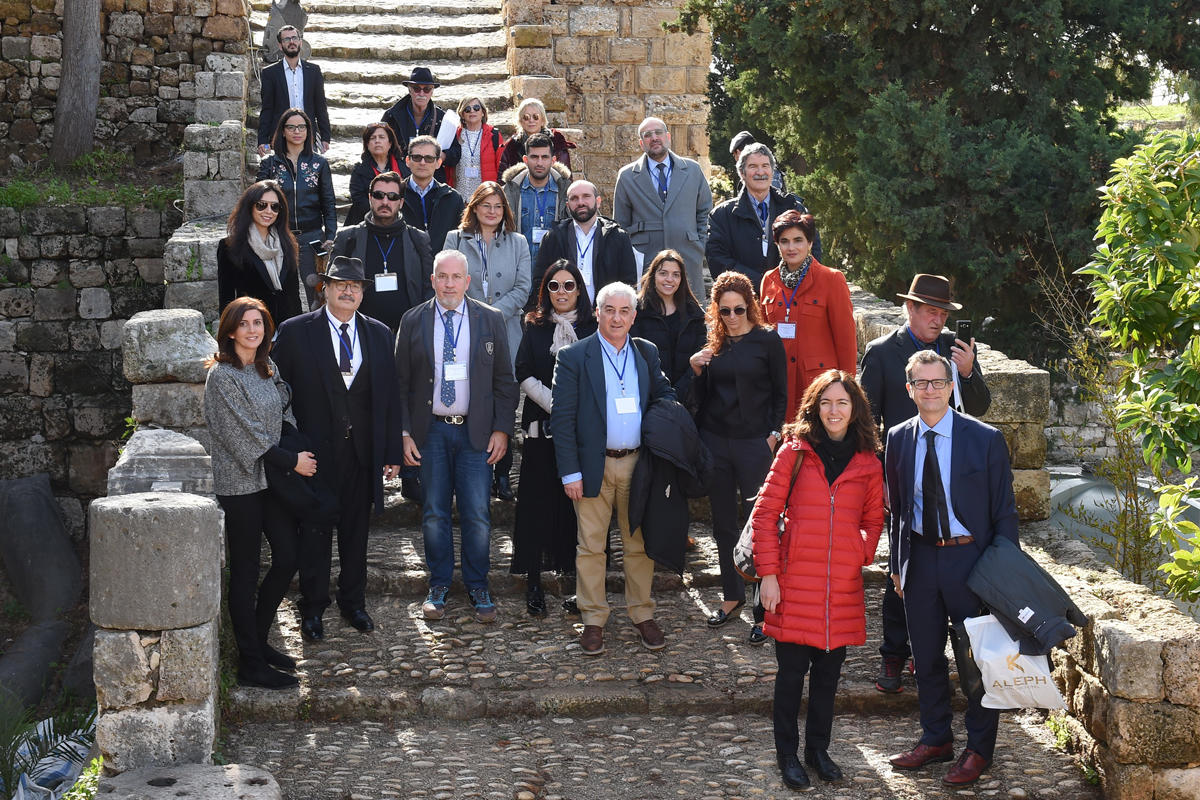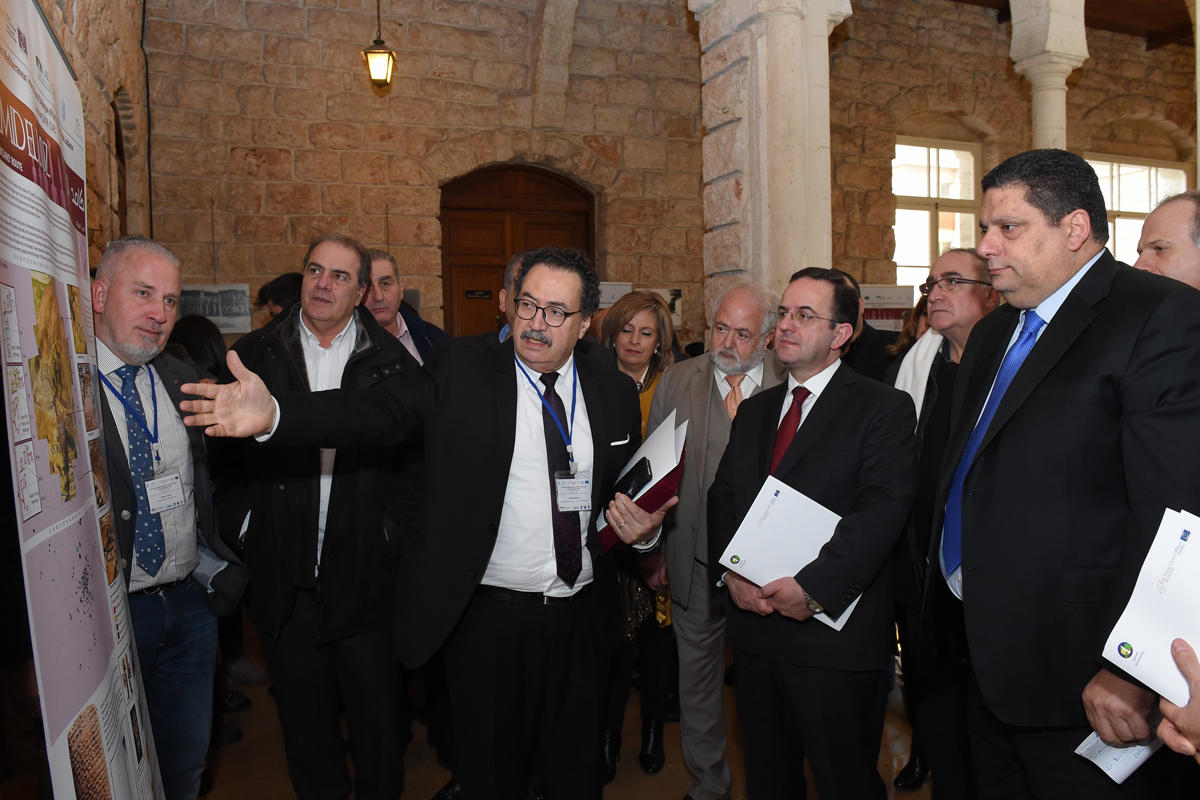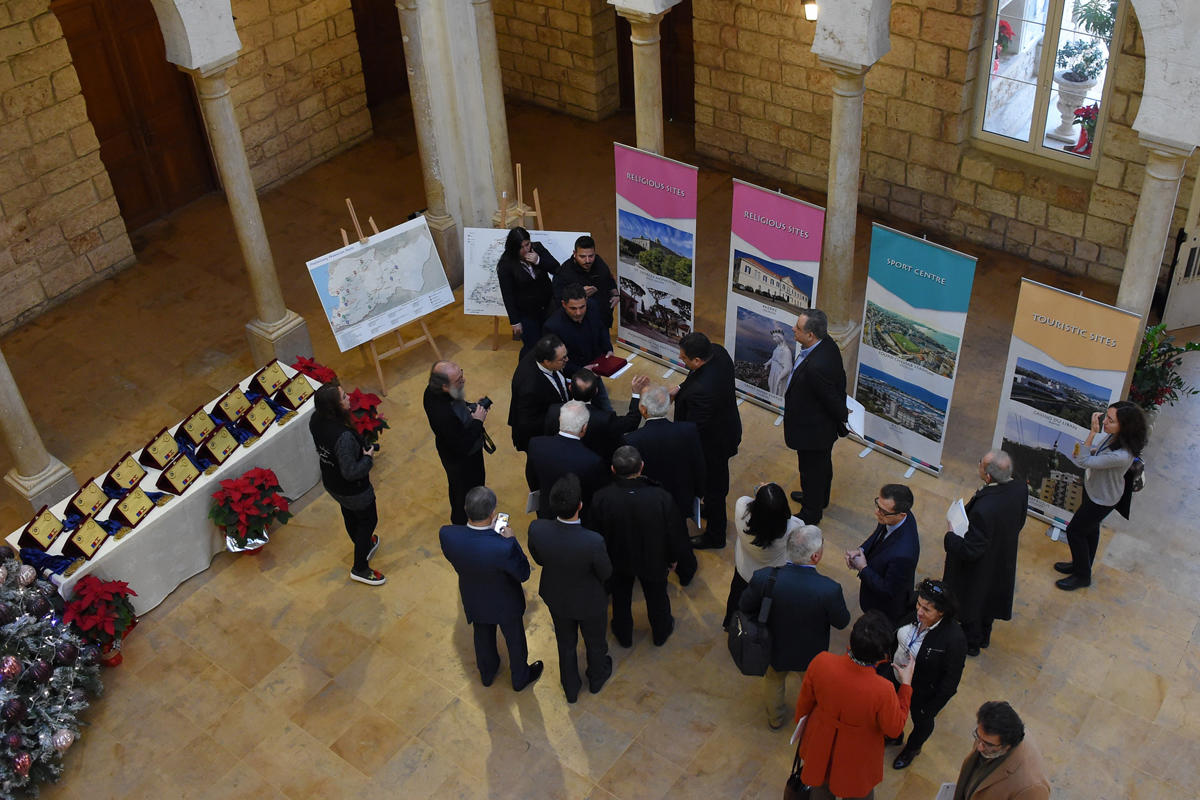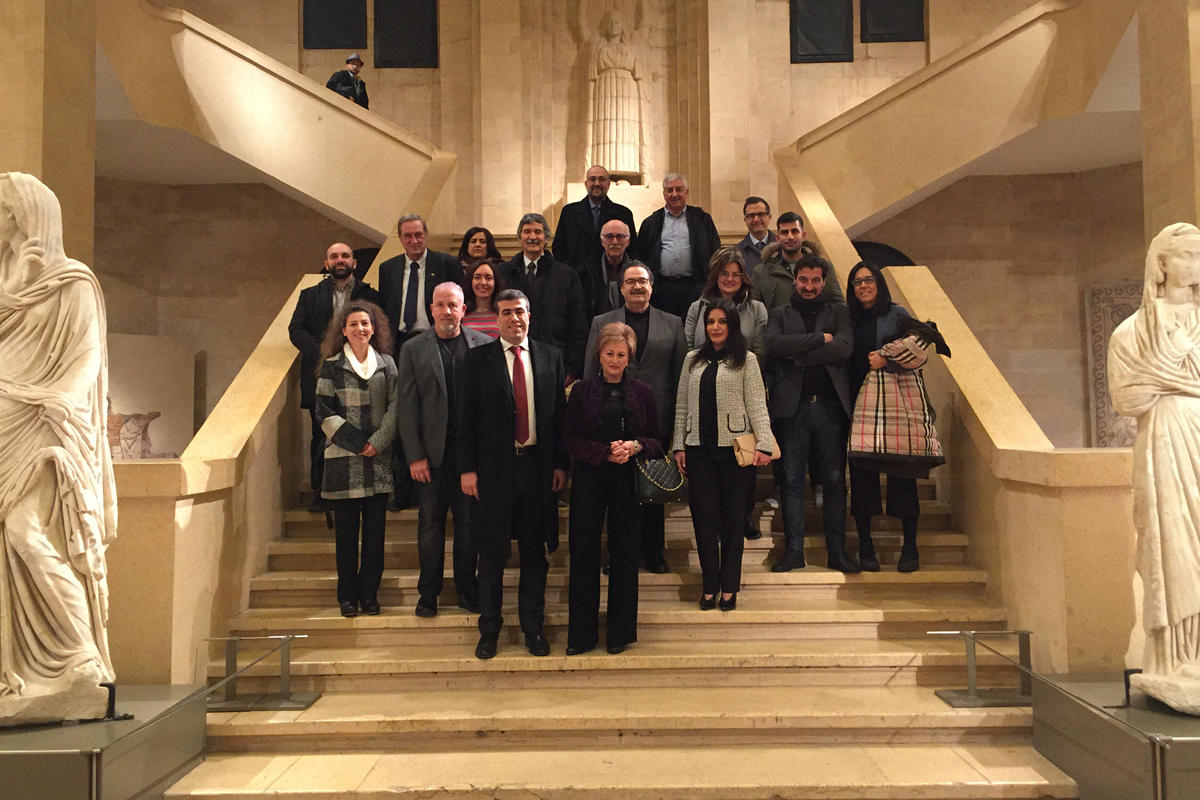The Phoenicians’ Homeland
The XII Euro Mediterranean Intercultural Dialogue on the Phoenicians’ Route revives heritage and promotes tourism.
As early as 1500 BCE, the Phoenicians used a series of Mediterranean cities as trade hubs for cultural and commercial exchange. Today, the Council of Europe identifies this itinerary as the Phoenicians’ Route, encompassing nine countries on three continents.
On January 10, LAU joined forces with the Council of Europe, the Lebanese ministries of Tourism and Culture, the LAU-Louis Cardahi Foundation (LCF) and several coastal Lebanese municipalities to celebrate the opening of the XII Euro Mediterranean Intercultural Dialogue on the Phoenicians’ Route 2019 at Radisson Blu Hotel. It was held under the patronage of the Lebanese Minister of Tourism Avedis Guidanian, and attended by high-ranking officials, ambassadors, scholars, and heads of public and private institutions, among others.
In her welcome address, Director General of the Ministry of Tourism Nada Sardouk pointed to the significance of the event in “attracting a cultural-touristic movement toward Lebanon,” while Guidanian revealed that the number of tourists in Lebanon reached two million in 2018 – up 300,000 from the previous year. He also affirmed that the event “promotes Lebanon’s position as the homeland of the Phoenicians.”
In his speech, LAU President Joseph G. Jabbra referred to the project as “absolutely essential in providing the opportunity for exchange between Lebanon and the rest of the Euro-Mediterranean countries.” He pronounced the subject very “dear to our hearts” as LAU’s logo is a Phoenician ship – the trireme – “symbolizing our mission to advance education everywhere and our profound belief in selfless giving, continuing progress, and the civilizing gift of education.’’
LAU’s own Dr. Rachid Chamoun, who was recently elected president of the International Confederation of the Phoenicians’ Route, declared this “more of a mission than a project.” He gave a brief overview of how the collaborations came to be, both between LAU and the two ministries, and with the Institute of Cultural Routes of the Council of Europe. Dr. Chamoun currently heads the LCF, and is a faculty member at the School of Architecture and Design (SArD).
Representing the minister of culture at the opening event was Dr. Sarkis Khoury, the Director General of the Department of Antiquities, who saw in celebrating national heritage “a chance to preserve our very identity in the face of ongoing struggles that test Lebanon and countries the world over.”
Echoing that thought, the Director of the European Institute of Cultural Routes Dr. Stefano Dominioni spoke of the Phoenicians’ Route – a certified Cultural Route of the Council of Europe since 2003 – as an “example of a cultural itinerary of dialogue that brings together the different people of the Mediterranean.” He linked this back to the Council of Europe’s very objective – having been founded right after World War II – to promote understanding among countries, and protect human rights and the rule of law.
The three-day event kicked off with a visit to the National Museum of Beirut, where the delegation was received by Dr. Khoury. The event also featured tours and lectures in Byblos, Sidon, Tyre and Jounieh. At each stop, speakers discussed the potential of the Phoenicians’ Route in driving tourism, conservation and heritage of the sites, as well as cooperation between Lebanese ministries, municipalities and the confederation.
The first stop was at the Outreach and Leadership Academy (OLA) Foundation in Sidon, where MP Bahia Hariri and Mayor Mohammad Al Saudi hosted a special reception, followed by a tour of the old city. In Tyre, the delegation was welcomed by the Deputy Mayor Salah Sabraoui and taken on a guided tour of the city by Dr. Hassan Badawi, head of the department of Archeological Doctoral Studies at the Lebanese University.
During the scientific conference – held at the LCF headquarters in the heart of Byblos’ Old Town – speakers from the Council of Europe, LAU and the ministries of tourism and culture examined how the Phoenician heritage can be leveraged to boost tourism.
Former minister Jean-Louis Cardahi gave an overview of LCF’s founding back in 1995, named after his late father who was a driving force in the city’s cultural life. “Byblos is the ideal place to host the dialogue on the Phoenicians’ Route,” he declared. Notably, the Director of the Phoenicians’ Route Antonio Barone also presented a strategic action plan – highlighting Lebanon’s role – and emphasized the need for universities, museums, cities and municipalities to work collaboratively on strategy for “creative tourism.”
Following the sessions, attendees moved on to the Byblos municipality where MP Ziad Hawat and Mayor Wissam Zaarour presented a commemorative trophy to the confederation.
The event culminated in a visit to the Jounieh municipality – under the patronage and participation of Guidanian – where Mayor Juan Hobeiche was pleased to inaugurate the Phoenicians’ Route Exhibition, set up by LAU’s students of architecture.
